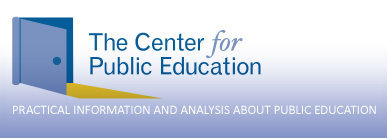Amerikaans onderzoeksrapport: wat is effect van betrokken ouders op prestaties van student?
9 december 2011
Ouderbetrokkenheid blijft een actueel onderwerp, zowel in Nederland als in Amerika. Minister van Bijsterveld riep onlangs ouders van Nederland op om meer tijd te besteden aan de opvoeding van hun kinderen en meer betrokkenheid te tonen bij hun school. Jozef Kok, adviseur in expertgroepen, audit- visitatie- en accreditatiecommissies voor lerarenopleidingen verwijst naar het Amerikaans onderzoeksrapport van het Center for Public Education. In hoeverre is betrokkenheid van ouders bij school van invloed op de resultaten van de studenten? It may be one of the least controversial statements in American education: Parent involvement can make a difference in a child’s education. Two-thirds of teachers surveyed (Public Agenda, 2003) believed that their students would perform better in school if their parents were more involved in their child’s education, while 72% of parents say children of uninvolved parents sometimes “fall through the cracks” in schools (Johnson & Duffett, 2003).
It may be one of the least controversial statements in American education: Parent involvement can make a difference in a child’s education. Two-thirds of teachers surveyed (Public Agenda, 2003) believed that their students would perform better in school if their parents were more involved in their child’s education, while 72% of parents say children of uninvolved parents sometimes “fall through the cracks” in schools (Johnson & Duffett, 2003).The conflict can come, though, on how to create that involvement, and whether all involved feel the particular activities are worthwhile. Do all the PTA meetings, take-home flyers and Back to School-nights actually generate increases in student achievement?
In this short paper, the Center for Public Education examines the research on the value of a school’s parent involvement activities on student outcomes.
How are parents involved in schools?
While virtually all schools promote parent involvement, there are different types of involvement, ranging from encouraging volunteering and fundraising to providing parents with home-based learning activities. Joyce Epstein of the Johns Hopkins University, Center on School, Family and Community Partnerships, one of the nation’s leading experts on parent involvement, has divided school parent involvement programs into six broad categories:
- Parenting, in which schools help families with their parenting skills by providing information on children’s developmental stages and offering advice on learning-friendly home environments;
- Communicating, or working to educate families about their child’s progress and school services and providing opportunities for parents to communicate with the school;
- Volunteering, which ranges from offering opportunities for parents to visit their child’s school to finding ways to recruit and train them to work in the school or classroom;
- Learning at home, in which schools and educators share ideas to promote at-home learning through high expectations and strategies so parents can monitor and help with homework.
- Decision-making, in which schools include families as partners in school organizations, advisory panels, and similar committees.
-
Community collaboration, a two-way outreach strategy in which community or business groups are involved in education and schools encourage family participation in the community.So how do parents participate? National survey data shows that attending school meetings or events is the leading form of parent participation in schools, followed by school fundraising activities. The National Center for Education Statistics’ Parent and Family Involvement in Education Survey for the 2007 National Household Education Surveys Program (Herrold and O’Donnell, 2008) included these conclusions from parent responses:78 percent attended a parent-teacher conference;
74 percent attended a class or school event;
65 percent participated in school fundraising;
86 percent said they had received information about the parents’ expected role at the student’s school;
46 percent served as a volunteer on a school committee; and
89 percent of those interviewed from January-May 2007 said they had attended at least one school or PTO/PTA meeting since the start of the school year.
Lees verder op http://www.centerforpubliceducation.org/Main-Menu/Public-education/Parent-Involvement/Parent-Involvement.html
 Dank aan Jozef Kok.
Dank aan Jozef Kok.


Reacties